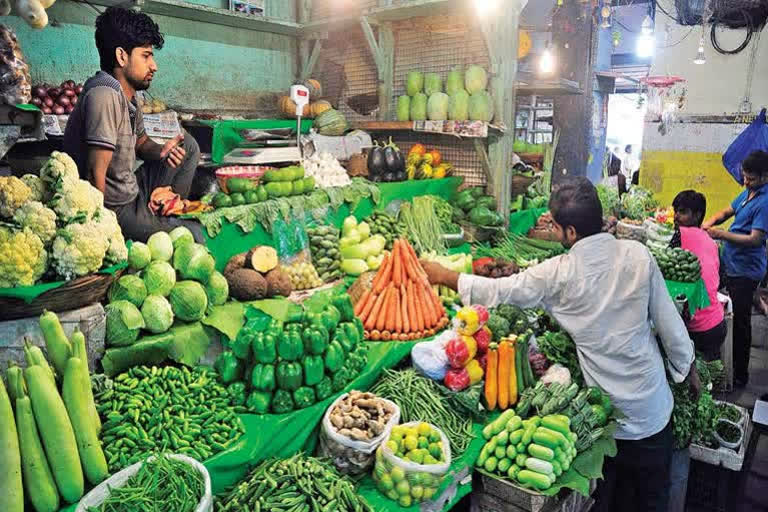New Delhi: Retail inflation rose to 6.93 per cent in July, mainly driven by rising prices of food items like vegetables, pulses, meat and fish, government data showed on Thursday.
The inflation based on the Consumer Price Index (CPI) stood at 3.15 per cent in July 2019.
Retail inflation for June has been revised upwards to 6.23 per cent from the earlier estimate of 6.09 per cent, as per the data released by the National Statistical Office (NSO).
The Reserve Bank of India has been mandated by the government to keep the CPI-based inflation at 4 per cent (+,- 2 per cent).
Retail inflation has remained above the 4 per cent mark since October 2019.
Last week, the Reserve Bank had kept interest rates on hold to contain elevated inflation. The central bank mainly factors in retail inflation while arriving at its bi-monthly monetary policy.
As per the NSO data, inflation in rural India was 7.04 per cent, while in urban areas it was 6.84 per cent during July, translating into a combined rate of price rise of 6.93 per cent.
The rate of price rise in 'meat and fish' segment was 18.81 per cent in July over the same month last year.
Similarly, the annual inflation was 12.41 per cent in 'oils and fats' and 11.29 per cent in vegetables. The annual inflation in the food basket was 9.62 per cent, the data showed.
Read more: The era of harassment of taxpayers is over: Prime Minister
In the 'fuel and light' segment, the CPI-based inflation stood at 2.8 per cent.
As the various COVID-19-related restrictions were gradually lifted and non-essential activities started resuming operations, availability of price data has also improved.
NSO collected prices from 1,054 (95 per cent) urban markets and 1,089 (92 per cent) villages during the month of July 2020, an official release said.
The price data are usually collected from selected 1,114 urban markets and selected 1,181 villages through personal visits by field staff of the Field Operations Division of NSO, under the Ministry of Statistics and Programme Implementation, on a weekly roster.
Commenting on the data, Aditi Nayar, Principal Economist, ICRA, said the CPI inflation hardened to a sharper-than-anticipated level, led by core items that are still adjusting to the new demand-supply dynamics, even as the increase in food inflation was along expected lines.
"As expected, the soaring vegetable prices amidst heavy rainfall and localised lockdowns, contributed to the spike in food inflation in July 2020, which is expected to soften somewhat in the ongoing month," she said.
Nayar opined that the stabilisation in prices of crude oil and retail fuels in recent weeks would ease the incremental pressure on the CPI inflation in the ongoing month.
Suman Chowdhury, chief analytical officer, Acuite Ratings & Research, said inflationary concerns may lead to a delay in further rate cuts and can raise the risks of stagflation.
"It is also expected to have an adverse impact on bond yields in the near term and may trigger the higher use of liquidity and yield management tools to optimise the cost of government's borrowings," Chowdhury said.
Rahul Gupta, Head of Research- Currency, Emkay Global Financial Services, said the CPI remains above RBI's target range mainly due to uptick in food inflation.
While the nationwide lockdown is easing, food inflation still remains a concern as regional lockdowns still persist, he said.
"Eventually, with better monsoon and further easing of lockdown, we can expect inflation to come under RBI's target range. But until the CPI hovers above 6 per cent, RBI will remain hesitant on cutting repo rate," Gupta added.
Nish Bhatt, founder and CEO, Millwood Kane International, said high inflation despite lockdown and low fuel prices is a cause of worry and may affect the central bank's ability to act on rates going forward.
(PTI Report)



